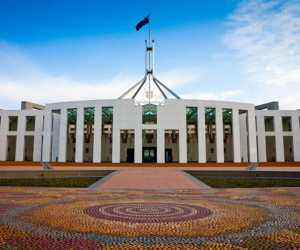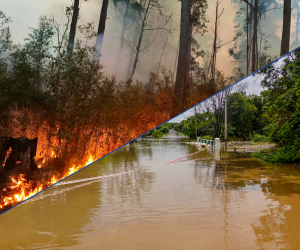
NIBA warns Senate: Climate change threatens insurance affordability and availability
The submission calls for urgent measures to address the affordability and availability of insurance in Australia.

Last week, the National Insurance Brokers Association (NIBA) provided a submission on behalf of the Senate Select Committee's inquiry on the impact of climate risk on insurance premiums and availability. Highlighting the increasing frequency and severity of natural disasters, the submission calls for urgent measures to address the affordability and availability of insurance in Australia.
NIBA’s submission draws attention to the alarming rise in catastrophic events globally. 432 separate events were recorded in 2021 alone, surpassing the annual average of 357 between 2001 and 2020. Floods were particularly prevalent, with 223 incidents compared to an average of 163. The Intergovernmental Panel on Climate Change (IPCC) projects that a 1.5-degree Celsius increase in global temperatures could quadruple the number of natural disasters, potentially subjecting Australia to fifty severe weather events annually.
"Insurance against climate risk is essential for mitigating the adverse effects of climate-related disasters," NIBA emphasised, underscoring the necessity of risk-sharing and risk-transfer mechanisms as highlighted by the IPCC and the United Nations Framework Convention on Climate Change. However, with the Climate Council predicting that one in 25 homes in Australia will be "effectively uninsurable" by 2030, the need for action is clear.
The submission also highlights the crucial role of insurance in disaster recovery. Citing studies from the aftermath of the 2005 Hurricane Season in America, NIBA noted that properties with insurance were 37% more likely to be rebuilt than those without, demonstrating that insurance is a pivotal factor in community resilience and economic stability.
However, the availability and affordability of insurance are increasingly threatened. In Northern Australia, for example, home insurance premiums are almost double the national average, with some areas seeing premiums more than four times higher due to cyclone risks. NIBA’s submission pointed to similar issues faced by property owners in flood-prone areas of New South Wales, where flood coverage can be prohibitively expensive.
The submission highlighted the economic and socioeconomic impact on policyholders, especially low—and middle-income households, who are disproportionately affected. NIBA warns that without adequate insurance, communities become more vulnerable to disasters, increasing reliance on government support and disrupting local economies. Those least able to afford insurance are often the most affected by natural disasters, exacerbating existing inequalities such as an increased risk of homelessness and poor mental health outcomes.
The submission concluded with a call for greater government intervention in implementing climate adaptation and resilience measures. "The role of government in implementing climate adaptation and resilience measures is paramount," advocating for strategic investments in infrastructure and sustainable practices. The association welcomed recent government commitments but urged for a long-term approach to ensure sustained support for mitigation projects.
You can read NIBA’s full submission here.


